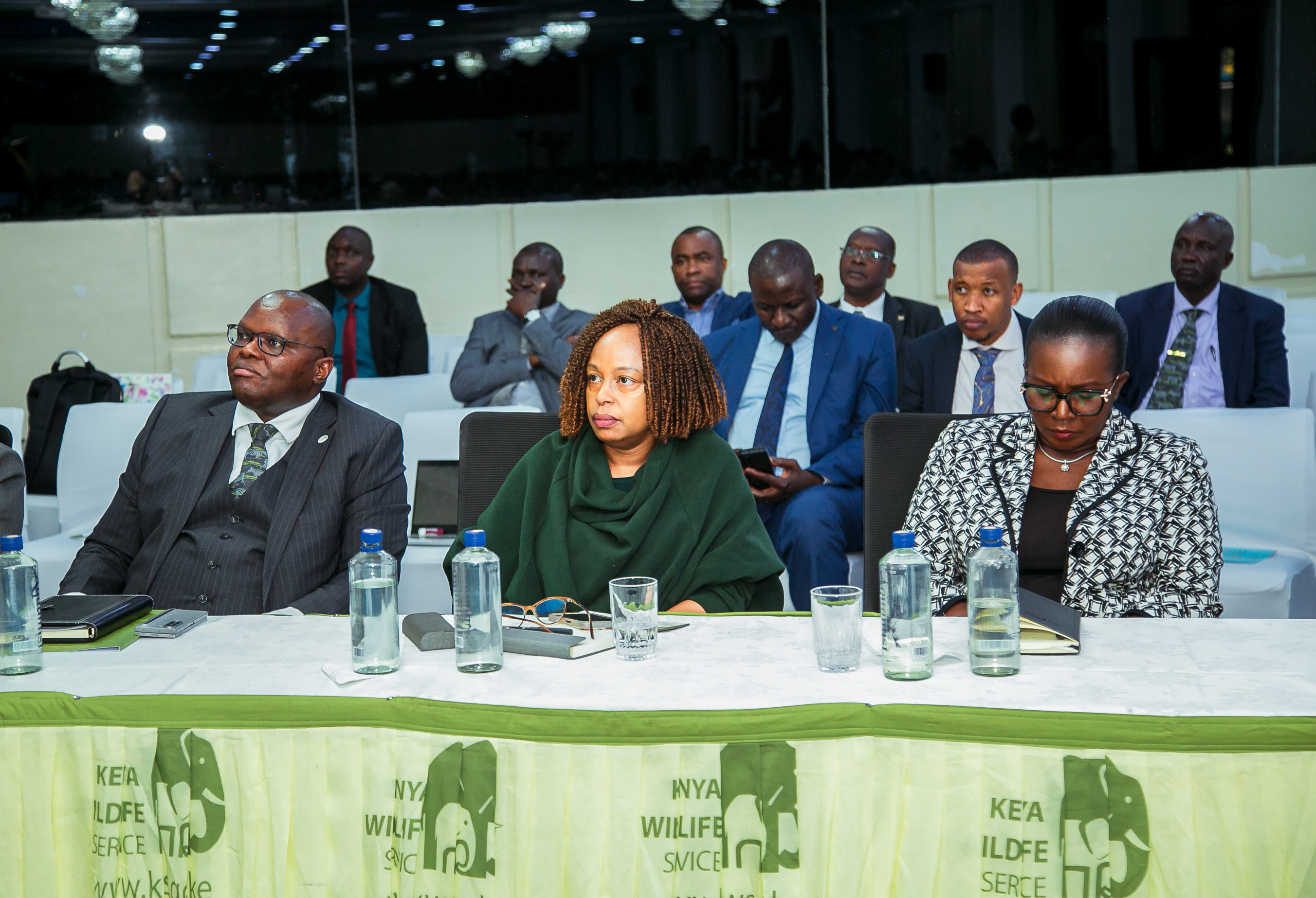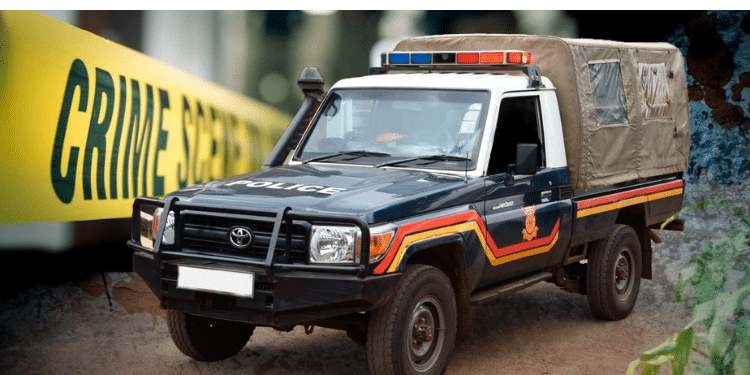

KWS director general Erustus Kanga, and KWS independent board members Nancy Mathenge and Rachael Omollo follow the public participation exercise on August 8 at KICC.
The nationwide public participation on the proposed review of conservation fees regulations ended on Friday.
During the final forum at KICC, Nairobi, Kenya Wildlife Service pleaded with Kenyans to be allowed to review the fee.
KWS director general Erustus Kanga made a case for the review, saying the last review was conducted in 2007—18 years ago.
“Over that time, everything else has increased in price—fuel, food, equipment, patrol vehicles, human-wildlife conflict response, hotel accommodation, tour van hire and salaries. But our park fees have remained the same for 18 years,” he said.
Kanga said the service is facing several challenges, yet expectations are increasing.
The expectations, he said, included the protection of wildlife, patrols in parks covering tens of thousands of square kilometres, and resolving human-wildlife conflict, among other daunting tasks.
“Our income is Sh7.9 billion every year, but our conservation needs are Sh19.7 billion. That is a shortfall of Sh12 billion,” Kanga said.
He warned if the shortfall is not fixed, the sector could potentially collapse. “We are sitting on a golden goose—our wildlife. But a golden goose must be fed regularly to keep laying. If we keep plucking its feathers—overusing it, underpricing it, neglecting its care—it will die. And when the goose dies, so do the golden eggs,” he said.
Kanga said before the plans to review the fees, the service commissioned an independent pricing study by tourism and conservation experts.
“The findings were clear—Kenya offers world-class wildlife experiences at some of the lowest rates globally. We are undervaluing our wildlife treasure.”
Kanga said issues raised by stakeholders in the sector have been heard.
He said the review will help strengthen community wildlife conservancies, improve predator-proof bomas and erect fences, increase benefit-sharing and support local livelihoods tied to conservation.
Kanga told the tourism partners the service is not proposing runaway fee hikes as the new structure is tiered, market-sensitive and phased.
He said Kenyan citizens and residents will continue enjoying affordable rates.
Kanga said new experiences such as night game drives, ballooning, canoeing and hiking, among others, will be introduced.
“We want visitors to see more, stay longer and spend more—in a way that benefits both the economy and the environment. We’re not making decisions in isolation—we have come to the ground to hear from you,” he said.
Kanga said should the service fail to review the fees, parks will deteriorate, rangers will struggle, wildlife will vanish, communities will give up and tourists will go elsewhere.
He said the review will restore pride in parks, empower communities and safeguard wildlife for generations.
“We will carefully review and incorporate all feedback, including written submissions sent via email and received at KWS offices nationwide," Kanga said.
"This input will inform the development of the second draft of the Wildlife Conservation and Management (Access and Conservation Fees) Regulations, 2025, which will undergo further stakeholder validation before finalisation and submission to Parliament for approval.”
The Nairobi forum brought together representatives from the tourism industry, conservation professionals, youth and officials from county and national governments. It marked the 20th and final meeting in a series of forums convened over the past one and a half weeks across 19 counties in Northern Kenya, Eastern, Western, Rift Valley, Nyanza, Central and Coast.
Across the 20 forums, participants emphasised the need for prudent use of funds to improve services, enhance park infrastructure, develop visitor facilities, mitigate human-wildlife conflict and introduce innovative tourism products to attract more visitors.
Stakeholders also proposed a flexible pricing model tailored to each park’s unique attributes, regular fee reviews to avoid steep increases after long intervals, greater transparency on fund utilisation, and expanded corporate social initiatives to support community-led conservation.
KWS head of marketing and business development Gladys Kosgei said in 2022-23, the service generated a revenue of Sh5.34 billion, grants (Sh3.02 billion), and expenditure (Sh9.75 billion), leaving a shortfall of Sh6.01 billion.
Kosgei said in 2023-24, KWS revenue was Sh7.74 billion, grants (Sh2.35 billion), expenditure (Sh9.81 billion), requirement (Sh17.54 billion), leaving a shortfall of Sh7.73 billion.
In 2024-25, KWS had a revenue of Sh7.92 billion, grants (Sh3.04 billion), expenditure (Sh12.56 billion), requirement (Sh19.79 billion), leaving a shortfall of Sh7.23 billion.
In 2025-26, KWS projects a revenue of Sh7.92 billion, grants (Sh1.72 billion), expenditure (Sh9.64 billion) and requirements (Sh21.88 billion), leaving a shortfall of Sh12.24 billion.
















